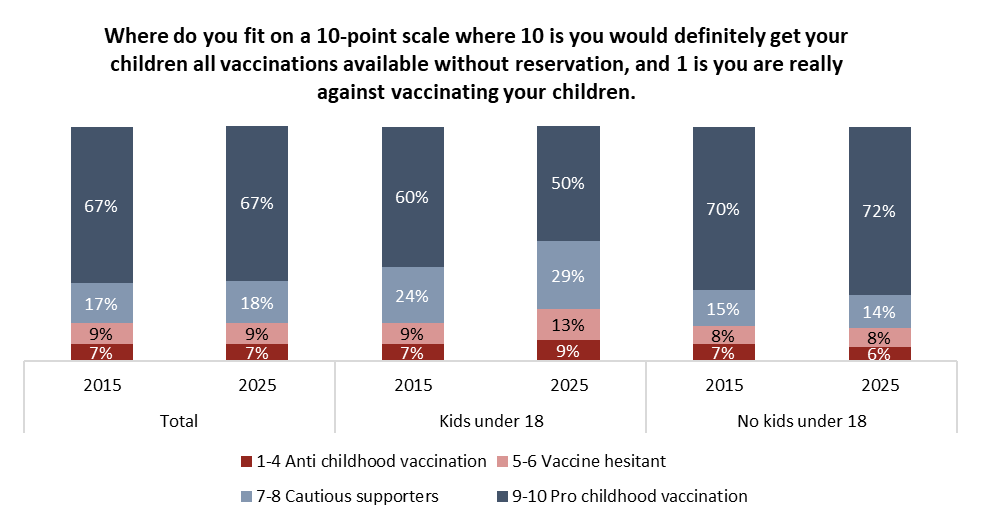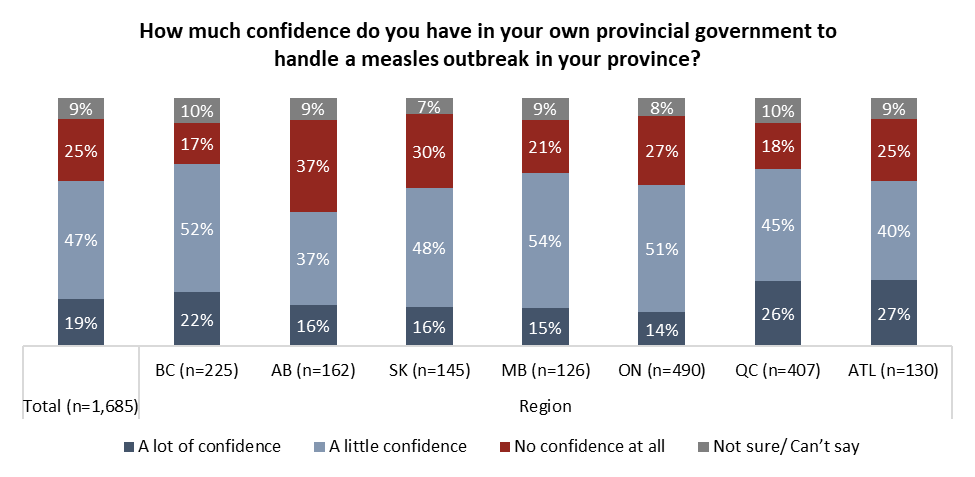Outbreaks of measles continue, appearing in nine provinces so far, with the vast majority occurring in Ontario and Alberta.
According to a new Angus Reid poll, the outbreak appears to have increased support for mandatory childhood vaccinations, with seven-in-10 Canadian adults now saying it should be a requirement for children to attend daycare or school. It represents an increase in support for mandatory childhood vaccinations from last year, when 55 per cent of Canadians said the same.

The 95 per cent immunization rate needed to provide herd immunity widely surpasses the number who are supportive of childhood vaccination. Among parents with children younger than 12, 37 per cent feel this should be the parents’ choice, and more than one-in-five (22%) of those with children under 18 can be classified as either hesitant (13%) or opposed (9%) to inoculating their child with the recommended vaccines.

These data also underscore the perceived seriousness of measles, which has seen four-times more cases already in 2025 than any year since 1998 – the year the disease was considered “eliminated”.
As to the practical and political aspects of responding to measles, many Canadians lack confidence in their provincial government to adequately respond. One-quarter (25%) say they have no confidence in their province, rising to 37 per cent in Alberta, 30 per cent in Saskatchewan, and 27 per cent in Ontario.

More Key Findings:
- Nine-in-ten (91%) Canadians believe vaccines are effective at protecting the individual getting vaccinated. A similar number (89%) say they are effective at reducing the spread of disease in the community. These figures have been at around this level since 2015.
- Three-in-ten (30%) Canadians believe “there is a real risk of serious side effects from these vaccinations”. Recent Conservative voters are much more likely (50%) than other political supporters to say this.
- The percentage of Canadians who believe “the science on vaccinations isn’t quite clear” has shrunk from 29 per cent in 2019 and 2024 to 23 per cent now.



